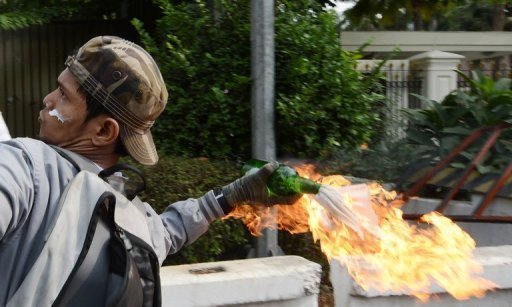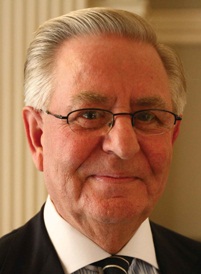In September last year, the Chief Executive of one of the UK’s largest supermarkets was given a two-year prison sentence by a court in Giza. It is a case that has its roots in a EGP 1.3bn failed attempt by Sainsbury’s to break in to the Egyptian market 16 years ago.
On Sunday, CEO Mike Coupe returned to Egypt to present his appeal at the ongoing trial in which former Sainsbury’s business partner Amr El-Nasharty accused that Coupe attempted to embezzle cheques from him in the summer of 2014.
The UK company has stated that Coupe “was not employed by Sainsbury’s at the time of the original business deal in 2001 and has never met the complainant”. The company also said a broadcast journalist can testify that he was in London at the time of the alleged theft. But the history of the business dealings, starting 15 years before, is full of intrigue.
In 1999, Sainsbury’s paid approximately EGP 100m for a quarter of Egyptian food chain Edge SAE. Six months and another EGP 400m later, and the company had taken control of 80% of the company and had an Egyptian supermarket chain running under the Sainsbury’s brand.
But the gamble to expand into the Middle East was a disastrous mistake. According to the figures, it seems like the business should have been a success, growing to around 100 stores and 5,000 employees. But in less than two years after the initial deal, the UK company pulled out.
Whilst Sainsbury’s at the time put the glitches down to licensing difficulties and a “deterioration of the trading environment in the Middle East”, it seems it was also its success that was a part of its undoing.
As politician Khaled Dawoud and journalist Brian Whitaker noted in a 2000 Guardian article: “When its first store opened in the Pyramids Road, small shopkeepers became alarmed, fearing that its price-cutting on basic commodities such as sugar, milk, cooking oil and wheat would drive them out of business.”
A public campaign against the supermarket ensued, and even sparked violence: “Other shop owners quickly realised that the best way to slow down its expansion was to spread the rumour that the Sainsbury family was of Jewish origin and donated money to Israel.”
Sainsbury’s strongly denied the rumours but students still took to protesting the Israeli treatment of Palestinians by stoning the store’s branches.
Despite sales of EGP 800m, the venture was losing around EGP 350m a year and as Sainsbury’s looked for the departure lounge, Business partner El-Nasharty stepped in to buy back the shares.
However, Nasharty’s multimillion pound cheques for shares of 80% of the company bounced.
Sainsbury’s was forced to take out £111m exceptional charge on their budget to cover the costs, but El-Nasharty charged that Sainsbury’s left the business in dire straits and with substantial tax liabilities.
Daily News Egypt spoke to Sainsbury’s press office, which passed on the following statement: “When Mr El-Nasharty bought our interest in the Egyptian joint venture we had with him in 2001, he paid us with cheques that were dishonoured. Mr El-Nasharty is now claiming that Mike was in Egypt on 15 July 2014 and seized these cheques, which is an impossibility. Mike Coupe was in London carrying out his normal duties that day.”
But El-Nasharty’s accusations against Sainsbury’s go deeper, and he took the company to UK court in 2007 in a case in which he levelled that the company had struck a corrupt deal with then-Prime Minister Atef Ebid and then-President Hosni Mubarak who forced him to buy the shares back.
UK Court papers seen by Daily News Egypt show that El-Nasharty states he was summoned to the Ebid’s office, who informed him that Sainsbury’s were considering liquidating the business and dismissing all of its 5,000 employees.
He told the court: “Dr Ebid explained that Presidential instructions had been issued requesting that I purchase the shares…he explained that if I did not buy the [Sainsbury’s] shares in Edge SAE, I could not regret what would then happen to me.”
“The result of my meeting with Dr Ebid was that I believed that if I did not buy the shares in Edge SAE, then owned by [Sainsbury’s], I would be imprisoned, or suffer very severe other penalties, or both. I had no choice but to comply with the request made to me.”
El-Nasharty said the following day he took a meeting with Sainsbury’s officials and they were “well aware of my meeting with Dr Ebid and of the purport of what I had been told”.
A press officer at Sainsbury’s told Daily News Egypt that they could not comment on this issue but that El-Nasharty has made a “series of court cases since 2003 against Sainsbury’s in the UK and in Egypt and all of them have been unsuccessful”.
El-Nasharty, who was unavailable for comment, fled to England in 2002 for unpaid debts, managing only to return to Egypt after settling bankruptcy agreements with local Egyptian banks.
Few of the murky business deals that implicate politicians from the Mubarak-era have truly been scrutinised and so it is unlikely that what really happened in 2001 will see the light of day.
But, Sainsbury’s for their part maintain they will fight the case to clear Coupe’s name in this latest case and have begun to take “all necessary steps to appeal against these groundless claims and will continue to do so.”


